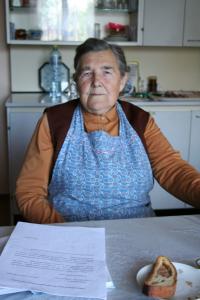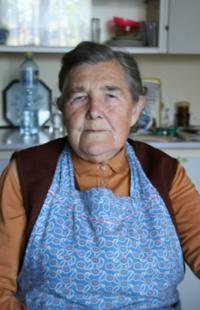From Bohemia to the Balkans and back again

Stáhnout obrázek
Miroslava Rybárová, née Valentová, was born on 15 September 1927 in Nová Ves in what was then Yugoslavia. Her family had lived there from the times of the Austro-Hungarian Empire. The village was almost completely made up of Czechs. Her father worked as a blacksmith. Miroslava was the oldest child, she was followed by a sister and in 1943 also by a brother. The family owned a small farm, where Miroslava worked a lot - which is one of the reasons why she only attended school for four years. During the war the village was passed through by various groups of combatants. First, the officers of the Yugoslavian army fled from the Germans. Then the new German occupants passed through and subsequently clashed with partisans on various occasions. The village also saw the arrival of the so-called Cherkhezi (similar to the Cossacks), who fought against the partisans and who confiscated much of the family‘s property. The villagers were threatened by the Ustashi, Croatian gendarmes who hated Serbs. People were murdered in the surrounding villages. Then the death toll hit Nová Ves as well. The locals helped the partisans, which provoked the gendarmes to a horrific act: the burning of ten local women. Miroslava then joined the partisans and was a member of the Youth Union and Czech Brigade groups until the end of the war. After the war she took part in the resettlement of the Czech border region. When she married in 1946, she and her husband decided to stay in the Bohemian-Moravian Highlands, where they live to this day.

